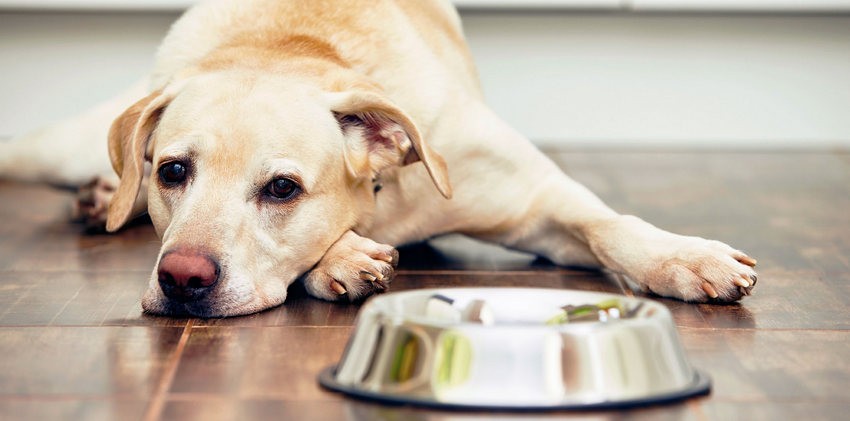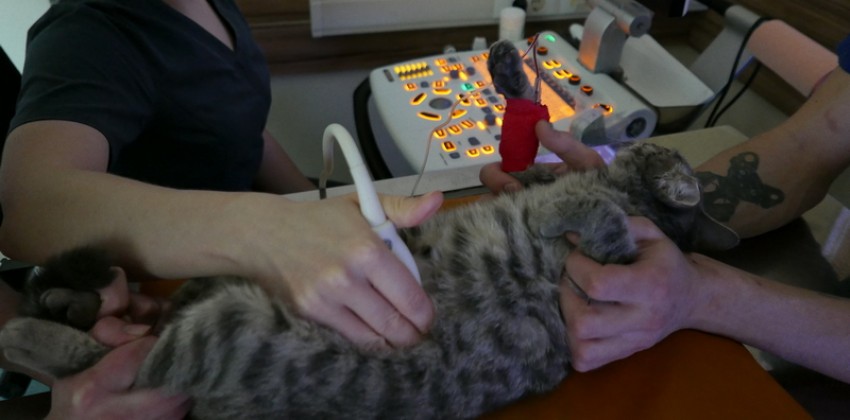Viral leukemia in cats: tests, treatment, vaccinations
 Infection with leukemia leads to death in 85% of cats with persistent infection (when the leukemia virus resides in the cat’s body) for 1.5 – 3 years after infection.
Infection with leukemia leads to death in 85% of cats with persistent infection (when the leukemia virus resides in the cat’s body) for 1.5 – 3 years after infection.
Leukemia infection is usually manifested as anemia or lymphomas, but since the virus adversely affects the immune system, the risk of infection with other infectious diseases and the appearance of other symptoms increase.
However, infection of a cat with viral leukemia is not a death sentence: 70% of cats infected with FeLV can resist infection for a long time, in some cases (an abortive form of the infection) can be completely cured!
How is cat leucosis virus diagnosed?
The analysis of viral leukemia is not an easy task, since the development of the FeLV virus in a cat’s organism goes through several stages, and the disease may develop differently in different cats. All cats that are suspicious of the disease should be given a blood test for the presence of leukemia virus.
Sometimes the body of cats suffering from leukemia copes with the infection and repeated analysis for the presence of cats leukemia virus is negative.
The primary rapid blood test determines the leukemia virus by specific proteins in the cat’s blood.
The second rapid test is carried out after 6 weeks to determine in the sick cats (the first test was positive) the persistent (constant) stage of the infection or in case the primary test was negative, but there was a risk of contact with the sick cat. If the first and second analyzes are positive, the forecast will be unfavorable.
When do they test for leukemia?
If a cat suspects any infection, while it has not previously been vaccinated against leukemia, the cat has had contact with unvaccinated animals.
As soon as possible after the cat appeared in your house, if you have not previously been vaccinated against FeLV (the kitten can be born already infected with viral leukemia in utero).
If the cat lives in a room with other cats, where one of them was infected with leukemia.
Recommended, but not necessary – before the first vaccination against leukemia (since the kitten could already be born infected or get infected from the mother or other cats)
Where can I get a test for cats leukemia and how much does it cost?
You can take the analysis in the laboratory at the veterinary center “Constellation” around the clock. To do this, the cat will take blood for research. The express test will take no more than an hour in the daytime. This test will show the presence of a virus in the cat’s blood. Learn more about the capabilities of our veterinary lab.
The price of diagnostics is given on the page with the price list of the veterinary clinic. All questions on the diagnosis can also be clarified by the telephone around the clock +7 (495) 617-41-12.
Where do cats vaccinate against viral leukemia?
In our veterinary center vaccinations against viral leukemia in cats are given with Purevax FeLV vaccine. This is the only vaccine against leukemia in cats without an adjuvant, created by a new technology of recombinant vaccines. This technology combines the effectiveness of attenuated (live) vaccines with the safety of inactivated (killed).
Purevax Felv for viral leukemia – vaccination of cats in Moscow
What cats need a vaccine for leukemia?
Cats who are planning to breed: all breeding cats should be vaccinated against leukemia
If the cat goes out: lives in a private house with access to the plot or is taken to the cottage
If several cats live together: kennels, shelters
If your cat fits at least one category, we strongly recommend regularly vaccinating against viral leukemia.
What is the vaccination scheme for kittens Purevaks FeLV?
Purevax FeLV is used together with Purevax RCP or Purevax RCPCh, to protect the cat not only against leukemia, but also against herpes virus (R), calicivirus (C), panleukopenia (P) and chlamydia (Ch).
Usually the first vaccine is at the age of 8 weeks, the second at the age of 12 weeks, then – annually.
Can a cat become infected with a virus leukemia vaccine?
No, it is absolutely impossible. Either an inactivated (killed) vaccine or a recombinant vaccine is used, as in the case of Purevax FeLV, which uses the canary virus, which is completely harmless to cats.
Need to check a cat before the first vaccination for viral leukemia?
It is recommended to check the cat rapid test before the first vaccination. The analysis is carried out on the day of vaccination and takes no more than an hour. Verification is done in order not to vaccinate cats infected with leukemia. Vaccination is also safe for infected cats, but there will be no benefit from vaccination.
How does viral leukemia occur?
The leukemia virus is transmitted with saliva, urine and feces of cats. Infection is unlikely, but still possible through contact with infected objects.
Mostly during close contact between cats: playing, licking (grooming), mating, using common bowls for eating and drinking – all of this seriously increases the risk of a cat becoming infected with leukemia.



